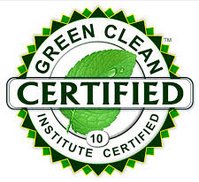 Transparent, honest, and accurate reporting is being required in the regulatory environment – and consumers and business-to-business (B2B) are expecting as much. In the case of sustainable, green products, offerings made by manufacturers and marketers are expected to meet the claims being made. Ford Motor Co. is feeling the heat right now from its second round of inaccurate MPG listings. Ford is committed to being environmentally responsible in its water conservation and manufacturing, but the MPG reporting doesn’t look very good.
Transparent, honest, and accurate reporting is being required in the regulatory environment – and consumers and business-to-business (B2B) are expecting as much. In the case of sustainable, green products, offerings made by manufacturers and marketers are expected to meet the claims being made. Ford Motor Co. is feeling the heat right now from its second round of inaccurate MPG listings. Ford is committed to being environmentally responsible in its water conservation and manufacturing, but the MPG reporting doesn’t look very good.
GreenBiz featured a webinar last week on the topic, “Understanding the B2B Green Marketing Landscape.” B2B companies are especially demanding – requesting unprecedented amounts of information about products’ environmental and health attributes. Joel Makower, executive editor at GreenBiz Group, moderated the panel that consisted of Scot Case, director, markets development at UL Environment; Kirsten Ritchie, principal, director of sustainable design at Gensler; and Yalmaz Siddiqui, senior director of environmental strategy at Office Depot.
UL Environment is working with clients, including companies in nanotechnologies, on validating credibility of sustainable product claims through its certification, validation, and testing services. Case said that $40 billion is being spent annually on green products in the US, and B2B could be even larger in sales. Consumers expect a lot from companies these days – a recent survey found that 65% of respondents want more trust and faith in claims being made, Case said.
Richie said that manufacturers are facing two challenges with green claims. They’re typically not adequately training their sales and distribution staff; and B2Bs and consumers need to have their questions answered by staff with understanding of how the technology works. The other problem is that manufacturers are underselling what they have to offer, Richie said. The product very likely has environmentally responsible parts, components, and manufacturing processes in place – and manufacturers are missing an obvious opportunity to inform customers. Her company, Gensler, consults on architecture, design, and planning in commercial buildings and deals with a lot of “eco-policy compliance.” LEED v4 is getting a lot of interest from clients, who need to be informed on the latest green building rating system, she said.
Paper products have become a testing lab for accurate eco-labels, Siddiqui said. Rating systems similar to outdoor-wear company Timberland’s Green Index, with its 0-to-10 rating system, are becoming common in the paper industry. Environmental Paper Network’s paper calculator is a popular measuring tool for analyzing the environmental impacts of paper and discovering the best paper choices. It comes from a coalition of more than 100 non-profit organizations aiming for sustainability in pulp and paper production, consumption, and recycling.



